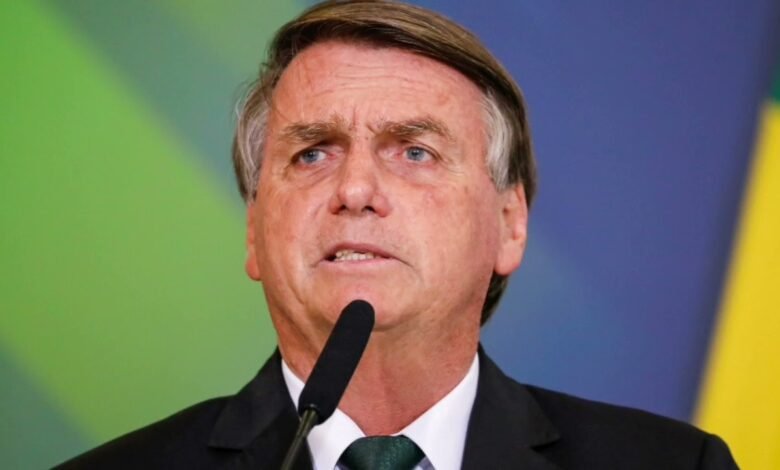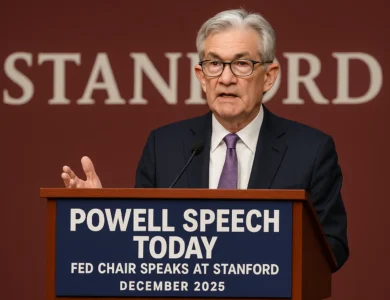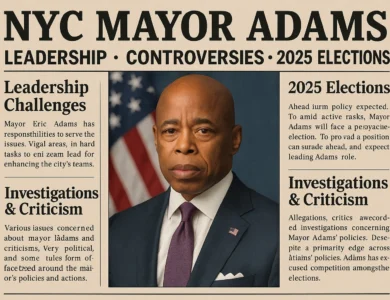
Jair Bolsonaro, often dubbed the “Trump of the Tropics,” emerged as one of the most polarizing leaders in modern Brazilian history. His presidency from 2019 to 2022 marked a dramatic shift in Brazil’s political landscape, characterized by controversial policies, inflammatory rhetoric, and deep societal divisions. From his early days as a military officer to his rise as a far-right politician, Bolsonaro’s journey reflects the complex political dynamics that have shaped contemporary Brazil.
The Brazilian president became a global figure not just for his domestic policies, but for his approach to environmental issues, democratic institutions, and international relations. His tenure was marked by significant controversies, including his handling of the Amazon rainforest, response to the COVID-19 pandemic, and challenges to Brazil’s electoral system. Understanding Bolsonaro’s impact requires examining his background, political ideology, policy decisions, and the lasting effects on Brazilian society and democracy.
This comprehensive analysis explores how Jair Bolsonaro transformed from a relatively obscure congressman into a controversial leader who reshaped Brazil’s political discourse and left an indelible mark on the nation’s democratic institutions.
Early Life and Military Career
From Military Academy to Political Awakening
Jair Messias Bolsonaro was born on March 21, 1955, in Glicério, São Paulo state, into a middle-class family. His formative years were shaped by traditional Catholic values and a strong sense of nationalism. In 1977, he entered the Agulhas Negras Military Academy, where he began developing the authoritarian worldview that would later define his political career.
During his military service, Bolsonaro served as a paratrooper and artillery officer. However, his military career was not without controversy. In 1987, he was arrested and briefly detained for allegedly planning to bomb military installations to protest low military salaries. This incident, published in Veja magazine, marked his first public controversy and demonstrated his willingness to challenge established authority when it served his interests.
Transition to Political Life
The Brazilian politician transitioned from military service to politics in the late 1980s, driven by his desire to advocate for military interests and conservative values. His military background provided him with a disciplined approach to politics and a network of connections that would prove valuable throughout his career. This foundation also instilled in him a deep skepticism of civilian political institutions and a preference for authoritarian solutions to social problems.
Political Rise and Congressional Career
Early Congressional Years (1991-2018)
Bolsonaro began his political career in 1991 as a federal deputy, representing Rio de Janeiro. During his 27 years in Congress, he was known for his controversial statements and provocative behavior. He consistently advocated for military interests, opposed human rights legislation, and made inflammatory comments about women, minorities, and LGBTQ+ individuals.
His congressional record was marked by relatively few legislative achievements, but he gained notoriety for his outspoken criticism of Brazil’s democratic institutions. The far-right politician often expressed nostalgia for Brazil’s military dictatorship (1964-1985), arguing that it was a period of order and progress. These positions, while controversial, resonated with segments of Brazilian society frustrated with political corruption and economic instability.
Building a Political Brand
Throughout his congressional career, Jair Bolsonaro carefully cultivated an image as an outsider willing to speak uncomfortable truths. He positioned himself as a defender of traditional family values, public security, and national sovereignty. His use of social media, particularly Twitter and Facebook, allowed him to bypass traditional media outlets and communicate directly with supporters.
His political brand was built on opposition to what he termed “cultural Marxism,” political correctness, and the perceived moral decay of Brazilian society. This messaging appealed to conservative voters who felt alienated by the progressive policies of the Workers’ Party (PT) governments under Luiz Inácio Lula da Silva and Dilma Rousseff.
The 2018 Presidential Campaign
Anti-Establishment Momentum
The 2018 presidential election took place against the backdrop of Brazil’s worst economic recession and the massive Lava Jato (Car Wash) corruption investigation that implicated much of the political establishment. Bolsonaro’s outsider status and promises to combat corruption resonated with voters seeking change.
His campaign was significantly boosted by the imprisonment of former president Lula, who was leading in early polls. The polarizing leader capitalized on anti-PT sentiment and positioned himself as the only candidate capable of preventing the left’s return to power. His simple campaign slogan, “Brazil Above Everything, God Above Everyone,” encapsulated his nationalist and religious messaging.
The Stabbing Incident and Electoral Victory
In September 2018, Jair Bolsonaro survived a stabbing attack during a campaign rally in Juiz de Fora. The incident, which left him seriously injured, paradoxically benefited his campaign by generating sympathy and reinforcing his image as a target of political persecution. Unable to participate in televised debates during his recovery, he avoided potential gaffes while maintaining media attention.
Bolsonaro won the election with 55.1% of the vote in the runoff against Fernando Haddad, representing the Workers’ Party. His victory marked a significant shift in Brazilian politics, bringing the far-right to power for the first time since the country’s return to democracy.
Presidency and Key Policies (2019-2022)
Economic Agenda and Neoliberal Reforms
As Brazilian president, Bolsonaro initially pursued a neoliberal economic agenda under the guidance of his Economy Minister Paulo Guedes. His administration implemented several market-friendly reforms, including the new fiscal spending cap, labor law changes, and attempts to privatize state-owned enterprises.
However, the controversial leader’s economic policies were often overshadowed by his political battles and erratic decision-making. The COVID-19 pandemic severely impacted Brazil’s economy, leading to increased government spending and social programs that contradicted his initial fiscal conservative stance. His administration’s handling of the economic crisis revealed the tension between his populist rhetoric and neoliberal policy prescriptions.
Environmental Policies and Amazon Controversy
One of the most internationally scrutinized aspects of Bolsonaro’s presidency was his approach to environmental protection, particularly regarding the Amazon rainforest. His administration significantly weakened environmental agencies, reduced funding for conservation programs, and encouraged development in protected areas.
The polarizing leader dismissed international criticism of deforestation increases, arguing that foreign environmentalists were infringing on Brazilian sovereignty. His conflicts with European leaders over Amazon policy led to diplomatic tensions and threatened trade agreements. The environmental legacy of his presidency became a major campaign issue in the 2022 election.
Democratic Institutions Under Pressure
Throughout his presidency, Jair Bolsonaro maintained a contentious relationship with Brazil’s Supreme Court, Congress, and electoral authorities. He repeatedly questioned the integrity of Brazil’s electronic voting system, despite its proven security record. His attacks on democratic institutions echoed strategies used by other authoritarian populist leaders worldwide.
The controversial leader faced multiple impeachment threats and investigations into his conduct. His handling of the COVID-19 pandemic, which resulted in over 680,000 deaths in Brazil, became a particular source of criticism from opposition parties and civil society organizations.
International Relations and Global Standing
Shifting Diplomatic Alliances
Bolsonaro’s foreign policy marked a significant departure from Brazil’s traditional multilateral approach. He aligned Brazil more closely with the United States under Donald Trump while distancing the country from regional partners and international organizations. His administration’s skepticism of international cooperation extended to climate agreements, trade deals, and human rights treaties.
The Brazilian president’s relationship with China, Brazil’s largest trading partner, was particularly complex. Despite his ideological opposition to communism, economic pragmatism forced him to maintain commercial ties with Beijing. This tension between ideology and economic necessity characterized much of his foreign policy approach.
Impact on Brazil’s Global Reputation
Brazil’s international standing declined significantly during Bolsonaro’s presidency. His environmental policies, democratic backsliding, and handling of the pandemic drew criticism from world leaders and international organizations. The country’s soft power, traditionally based on its peaceful foreign policy and environmental stewardship, was severely damaged.
The 2022 Election and Its Aftermath
A Narrow Defeat
The 2022 presidential election represented a referendum on Bolsonaro’s presidency. Despite predictions of a larger margin, he lost narrowly to Luiz Inácio Lula da Silva by just 1.8 percentage points. The close result demonstrated the deep polarization in Brazilian society and the enduring strength of his political base.
Jair Bolsonaro’s refusal to immediately concede defeat and his questioning of the electoral process echoed concerns about democratic consolidation in Brazil. His supporters’ invasion of government buildings in Brasília on January 8, 2023, drew comparisons to the January 6 Capitol attack in the United States.
Post-Presidential Challenges
Following his electoral defeat, the polarizing leader faced numerous legal challenges, including investigations into his role in spreading misinformation about the electoral system and his handling of the COVID-19 pandemic. His political future remains uncertain as Brazil’s judicial system examines his conduct during and after his presidency.
Legacy and Impact on Brazilian Politics
Transformation of the Political Landscape
Bolsonaro’s presidency fundamentally altered Brazilian political discourse, normalizing extreme rhetoric and polarizing debates about democracy, human rights, and social issues. His success in mobilizing conservative voters created a lasting political movement that continues to influence Brazilian politics.
The far-right politician’s use of social media and direct communication with supporters established new patterns of political engagement that subsequent politicians have adopted. His ability to frame political opponents as enemies of the nation contributed to the deterioration of democratic norms and civil discourse.
Lasting Institutional Effects
The institutional damage caused by Jair Bolsonaro’s attacks on democratic institutions may take years to fully repair. His presidency tested the resilience of Brazilian democracy and revealed vulnerabilities in the country’s constitutional system. The response of institutions like the Supreme Court and electoral authorities demonstrated both the strength and limitations of Brazil’s checks and balances.
Conclusion
Jair Bolsonaro’s presidency represents a watershed moment in Brazilian history, marking the rise of far-right populism in Latin America’s largest democracy. His tenure was characterized by controversial policies, attacks on democratic institutions, and deep social polarization that continues to shape Brazilian politics.
The polarizing leader’s legacy extends beyond his specific policy achievements or failures. He demonstrated how anti-establishment sentiment, social media manipulation, and cultural grievances could be mobilized to achieve political power in a democratic system. His presidency serves as both a case study in democratic backsliding and a testament to the resilience of Brazilian institutions.
As Brazil moves forward, the lessons learned from Bolsonaro’s presidency will be crucial for understanding the challenges facing democracy in the 21st century. His impact on Brazilian society, politics, and international relations will likely be debated for decades to come, making him one of the most significant and controversial leaders in the country’s modern history.
Read More: Did Donald Trump Have a Stroke? What We Know






